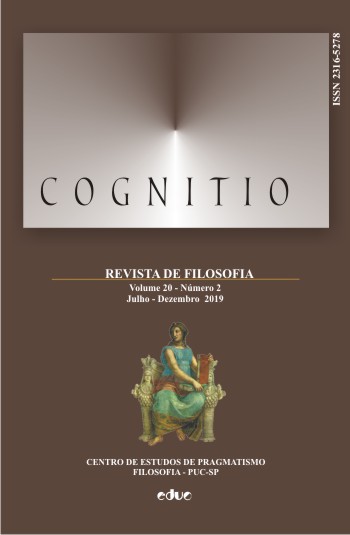The semiotic resilient mind: conflictual and agapic relationship between logical and emotional interpretants
DOI:
https://doi.org/10.23925/2316-5278.2019v20i2p378-391Keywords:
Beliefs, Habits, Kinds of interpretants, Mind, Peirce, Resilience.Abstract
By resilient mind I mean every mind’s capacity to deal with the hardness of otherness, which demands a continuous effort to allow the development of habits of conduct. The predicate of resilience comes from the mind’s ability to self-correct every time such habits lose their mediative efficiency, therefore requiring the reconstruction of new cognitive mediations as habits of action. In this paper, I propose to reflect on the set of semiotic interpretants proposed by Peirce with the aim of exploring their habitual facet. With this line of analysis, I intend to show that resilience is a necessary property that every mind must have in the highest degree in order to deal with the conflict between emotional and logical interpretants, where the predominance of the former to the detriment of the latter can generate acute situations of psychological suffering by blocking access to representations that otherwise might break the brute force of otherness.Downloads
Published
2020-02-16
How to Cite
Ibri, I. A. (2020). The semiotic resilient mind: conflictual and agapic relationship between logical and emotional interpretants. Cognitio: Revista De Filosofia, 20(2), 378–391. https://doi.org/10.23925/2316-5278.2019v20i2p378-391
Issue
Section
Cognitio Papers









